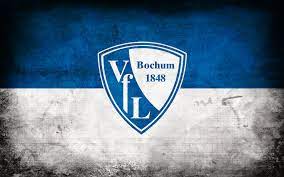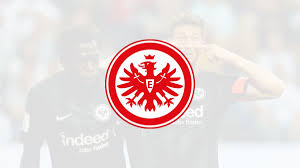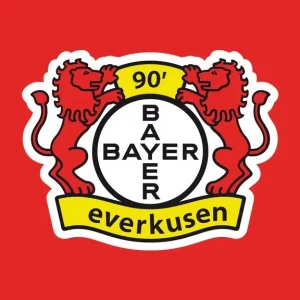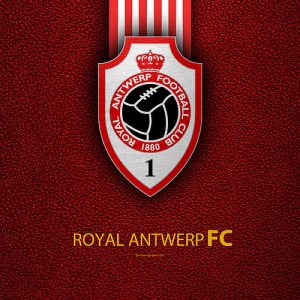Sparta Prague Football Club, also known simply as Sparta Prague, has a rich and illustrious history that dates back over a century. Established in 1893, it is one of the oldest football clubs in the Czech Republic and has become synonymous with excellence in Czech football. The club’s journey through time is marked by numerous victories, cultural significance, and passionate fan support, making it a pillar of Czech sports culture hb88ka.com.
Origins of Sparta Prague Football Club
The founding of Sparta Prague Football Club was a reflection of the rising popularity of football across Europe in the late 19th century. In this section, we will explore the early days of the club, the influence of local sports on its formation, and how it laid the groundwork for future successes.
Birth of a Footballing Legacy
In 1893, a group of Prague students and athletes, inspired by the burgeoning sport of football, decided to establish a sporting society. This initiative led to the establishment of Sparta Prague, initially focused on various athletic pursuits including cycling, gymnastics, and football.
Football quickly emerged as the predominant focus of the club. The founders aimed not only to excel in sports but also to promote physical education among the youth. The club’s name “Sparta” was inspired by the ancient Greek city-state known for its militaristic focus and discipline, signaling the ambition of the founders to create a formidable athletic institution.
The early matches played by Sparta Prague were more than just games; they symbolized a social gathering that attracted spectators from different backgrounds, fostering community spirit. These initial years set a precedent for the club’s long-lasting relationship with its fans, an element that would prove crucial to its identity.
Rise to Prominence
As the club ventured into the 20th century, Sparta Prague began competing in regional leagues. Its early participation laid the foundation for what would become a storied rivalry with other Czech clubs, particularly Slavia Prague. Matches between these two teams are known as the “Prague Derby,” and their intense competition reflects the broader historical and cultural tensions in the region.
By the early 1900s, Sparta Prague had already begun winning championships, establishing itself as a dominant force in Czech football. Its first major success came in 1906 when it won the inaugural title of the Czech Football League, marking the beginning of a legacy of triumphs. The club’s achievements during this period can be traced back to robust recruitment strategies, which included attracting some of the best local talents to join their ranks.
The club’s ambitions were not limited to national competitions. In 1921, Sparta Prague made its debut on the European stage by participating in the inaugural edition of the international tournament called the Central European Cup. This introduction to elite competition further solidified the club’s reputation as one of the leading teams in Central Europe.
Cultural Impact and Social Significance
Throughout its history, Sparta Prague has been more than just a football club; it has played a vital role in shaping the cultural landscape of the Czech Republic. The early 20th century was marked by significant political and social changes in the region, and the club found itself at the heart of these transformations.
During times of unrest and conflict, Sparta Prague became a symbol of resistance and unity. Its achievements on the field resonated with the public, offering hope and joy amid challenging circumstances. The club’s ethos, rooted in hard work, determination, and respect for tradition, has inspired generations of players and supporters alike.
As the club grew, so did its influence beyond the confines of sport. It became a center for social interaction, engaging fans from different walks of life. The camaraderie fostered by shared experiences at matches built a sense of belonging that transcended mere sports fandom. Such social bonds have contributed to the club’s enduring legacy in Czech society.
Golden Era of Sparta Prague Football Club
The mid-20th century heralded a golden era for Sparta Prague, characterized by unprecedented successes both domestically and in European competitions. This section will delve into the club’s most fruitful years, the legendary players who graced its pitch, and the milestones achieved that secured its place in football history.
Dominance in Domestic Competitions
In the decades following World War II, Sparta Prague entered what many consider its most successful period. The team consistently topped the domestic league, capturing multiple titles and setting records that remain unbroken to this day.
The club’s dominance is largely attributed to its effective youth development system, which prioritized nurturing local talent. Young players were given opportunities to rise through the ranks, ensuring a continuous influx of skilled athletes into the first team. This commitment to developing homegrown talent has become a hallmark of Sparta Prague, allowing the club to maintain its status as a powerhouse in Czech football.
As the club continued to win league titles, its reputation spread beyond the borders of Czechoslovakia. Internationally, Sparta Prague was recognized for its disciplined style of play and tactical prowess. The team’s strong defensive lineup complemented by a potent attack made it a formidable opponent in any competition.
European Adventures
With a strong domestic foundation, Sparta Prague set its sights on European glory. The club participated in several prestigious tournaments, including the European Champions Cup. The late 1960s and early 1970s saw Sparta Prague make significant strides on the international stage, reaching the latter stages of various competitions.
One of the highlights of this era was the remarkable run in the 1973–74 UEFA Cup when Sparta Prague reached the semifinals. The team’s performance showcased its tactical astuteness and ability to compete against Europe’s elite. Although they fell short of clinching the title, the campaign solidified Sparta Prague’s position as a respected force in European football.
The club’s European performances during this era also encouraged increased investment in facilities and coaching. Recognizing the need for modern infrastructure, Sparta Prague undertook extensive renovations to its training grounds and stadium, creating an environment conducive to sustained success.
Legendary Players and Coaches
No discussion of Sparta Prague’s golden era would be complete without mentioning the iconic players and coaches who shaped the club’s destiny. Throughout its history, the club has been home to some of the finest talents in Czech football, each leaving an indelible mark on the club.
Players such as Josef Masopust, who not only shone brightly for Sparta Prague Football Club but also earned accolades at the international level, played key roles during these triumphant years. Masopust’s skill and leadership on the field exemplified the club’s values and inspired countless aspiring footballers.
In addition to players, coaches also played pivotal roles in driving the club forward. Their tactical insights and ability to connect with players fostered an atmosphere where talent could thrive. Coaches emphasized teamwork, discipline, and dedication—qualities that became synonymous with the Sparta Prague brand of football.
As the roster evolved, new stars emerged, keeping the club competitive at the highest levels. The cyclical nature of talent within Sparta Prague has ensured that the club remains relevant and continues to attract top players from both local and international spheres.





